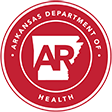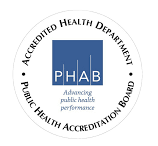Glen F. Baker Public Health Laboratory
Protecting Arkansans through quality laboratory science, leadership, and innovation
 Founded in 1913, the Glen F. Baker Public Health Laboratory at the Arkansas Department of Health serves the state of Arkansas by providing analytical services, education, and leadership in public health practice. The Public Health Laboratory provides testing for safe food and drinking water, detects inherited genetic disorders in newborns, and helps safeguard Arkansans of all ages against infectious diseases such as sexually transmitted diseases, tuberculosis, HIV/AIDS, rabies, and Zika virus, as well as chemical and biological agents of terrorism.
Founded in 1913, the Glen F. Baker Public Health Laboratory at the Arkansas Department of Health serves the state of Arkansas by providing analytical services, education, and leadership in public health practice. The Public Health Laboratory provides testing for safe food and drinking water, detects inherited genetic disorders in newborns, and helps safeguard Arkansans of all ages against infectious diseases such as sexually transmitted diseases, tuberculosis, HIV/AIDS, rabies, and Zika virus, as well as chemical and biological agents of terrorism.
| Office | Address | Phone | Fax |
|---|---|---|---|
| Glen F. Baker Public Health Laboratory | 201 S. Monroe Street Little Rock, AR 72205 |
501-661-2220 | 501-661-2310 |
Laboratory Services
Clinical Testing
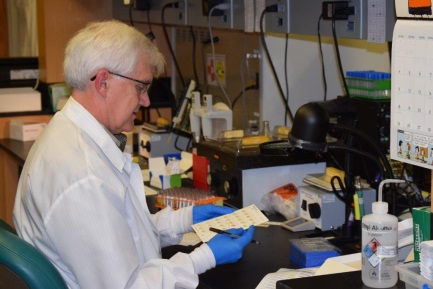 The clinical laboratories at the Public Health Laboratory test for infectious agents in humans and animals, provide reference testing in support of epidemiological investigations and serve as the State’s response laboratory for the identification of biothreat agents. In addition, the clinical laboratory tests all newborns in the state for inherited disorders that cause severe mental and physical illnesses.
The clinical laboratories at the Public Health Laboratory test for infectious agents in humans and animals, provide reference testing in support of epidemiological investigations and serve as the State’s response laboratory for the identification of biothreat agents. In addition, the clinical laboratory tests all newborns in the state for inherited disorders that cause severe mental and physical illnesses.
- Immunology/Serology
- Microbiology
- Molecular Biology
- Mycobacteriology
- Mycology
- Newborn Screening
- Parasitology
- Rabies
- STDs
All documents are in PDF format unless otherwise noted.
| Downloads |
|---|
| PHL Directory of Service |
| Directory of Services and Test Menu |
| CLIA Certificate |
| CAP Certification |
| Lab Web Portal |
| Lab Web Portal Guidance |
| Lab Web Portal Forms: Activation | Deactivation |
Drinking-Water Certification
In conformance with the EPA's laboratory certification program, the State of Arkansas has accepted primary responsibility for certifying local laboratories for performing drinking water analyses. Laboratories seeking certification must successfully pass a set of proficiency samples provided by an acceptable PT provider, submit Quality Assurance Plans and SOPs for approval, and finally pass an on-site evaluation conducted by the State Certification Officers. Currently, laboratories may only be certified for microbiology tests. To request consideration for certification, laboratories must submit request and submit the Drinking Water Microbiology Laboratory Certification Packet. This request can be mailed to the certification officers at Mail Stop 47, Arkansas Department of Health, 4815 West Markham, Little Rock, AR 72205.
Evaluations of laboratories are conducted using the Fifth Edition of the "Manual for the Certification of Laboratories Analyzing Drinking Water." After evaluations are completed, debriefing sessions are held with laboratory personnel outlining the findings of the audit and noting deviations found, if any. Upon returning to the Central Office, The Certification Officers will prepare a written evaluation report. This report details any deviations found with recommended changes and certification status.
The following levels of certification are available:
- Certified
- The Laboratory meets the minimum requirements for certification according to the "Manual for the Certification of Laboratories Analyzing Drinking Water." This certification is valid for three years.
- Provisionally Certified
- The Laboratory has deficiencies but can still produce valid data. Laboratories have up to one year to correct deficiencies. A six month extension will be considered if the laboratory is making "good faith" progress in correcting the deviations.
- Not Certified
- The laboratory has major deficiencies and cannot, in the opinion of the certification officer, produce valid data. Laboratories not granted certification may request reevaluation after the correction of all deviations has been completed.
-
Interim Certification
-
The laboratory has been granted interim certification status only in certain circumstances when it is impossible or unnecessary to perform an on-site audit. On-site audits are performed as soon as possible but no later than three years.
-
Certification may be downgraded for either of the following reasons:
- Failure to notify the Certification Officer within 30 days of major changes in personnel, equipment, or laboratory location which might impair analytical capability.
- Failure to maintain the standards of quality required by the "Manual for the Certification of Laboratories Analyzing Drinking Water," based on an on-site evaluation.
The Laboratory Director will be notified immediately of a laboratory decertification when the Certification Officer determines such an action will occur.
The formal written laboratory evaluation is forwarded to the following parties:
- EPA Region VI Administrator
- Director of Public Health Laboratories
- Director of Engineering
- Laboratory requesting certification.
Environmental Testing
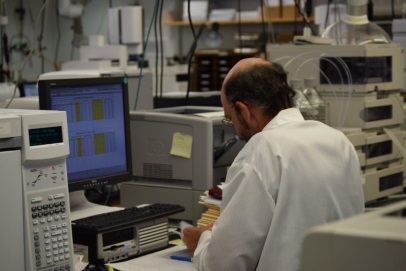 Approximately 240 million Americans get their drinking water from public water systems. Working in collaboration with the Environmental Protection Agency, the Arkansas Department of Health's environmental laboratories protect public drinking water by conducting regular water quality analysis of water samples from water sources around the state for pesticides, herbicides, metals and other contaminants. In addition, environmental laboratories serve as the State’s response laboratory to chemical threat agents.
Approximately 240 million Americans get their drinking water from public water systems. Working in collaboration with the Environmental Protection Agency, the Arkansas Department of Health's environmental laboratories protect public drinking water by conducting regular water quality analysis of water samples from water sources around the state for pesticides, herbicides, metals and other contaminants. In addition, environmental laboratories serve as the State’s response laboratory to chemical threat agents.
The Public Health Laboratory also provides bacteriological and chemical analysis for dairy products produced within the state. These analyses help verify that Arkansas dairy products are in compliance with state and federal standards.
- Organic Chemistry
- Inorganic Chemistry
- Radio-chemistry
- Water Microbiology
- Milk Lab
Office of Alcohol Testing
The Office of Alcohol Testing (OAT) is authorized by state law to certify and approve instrumentation to be used in evidential breath testing as it relates to drinking and driving. The office is also responsible for certification of personnel authorized to use this equipment.
- Lab/Instrumentation – 501-661-2425
- Training of Law Enforcement – 501-661-2560
- Application
- Arkansas Rules for Alcohol Testing
- Drop Form
- Ignition Interlock Regulations
- Senior Operator Training Manual
- Operator Training Manual
- Replacement Card Request
- Breath Testing SOP
Kits
Some tests require special collection and/or mailing kits. The following special kits are furnished upon request by the closest Local Health Unit or by calling 501-280-4075. See below for a list of special kits available.
- Enteric Pathogens/Stool Culture Kt
- Fungus Culture – Sputum for Fungi
- Ova and parasites – For Ova and Parasite Detection.
- Another special collection kit is a Neonatal collection kit (dried blood spots) for Newborn screening tests. To obtain a kit for Newborn Screening, call 501-661-2200.
Another special collection kit is a Neonatal collection kit (dried blood spots) for Newborn screening tests. To obtain a kit for newborn screening, call 501-661-2220.
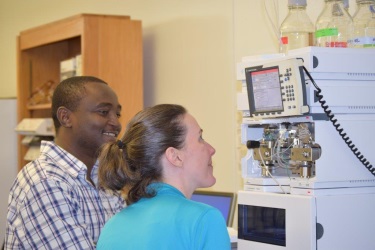
Want to know more? Visit our Frequently Asked Questions for the Public Health Laboratory.
